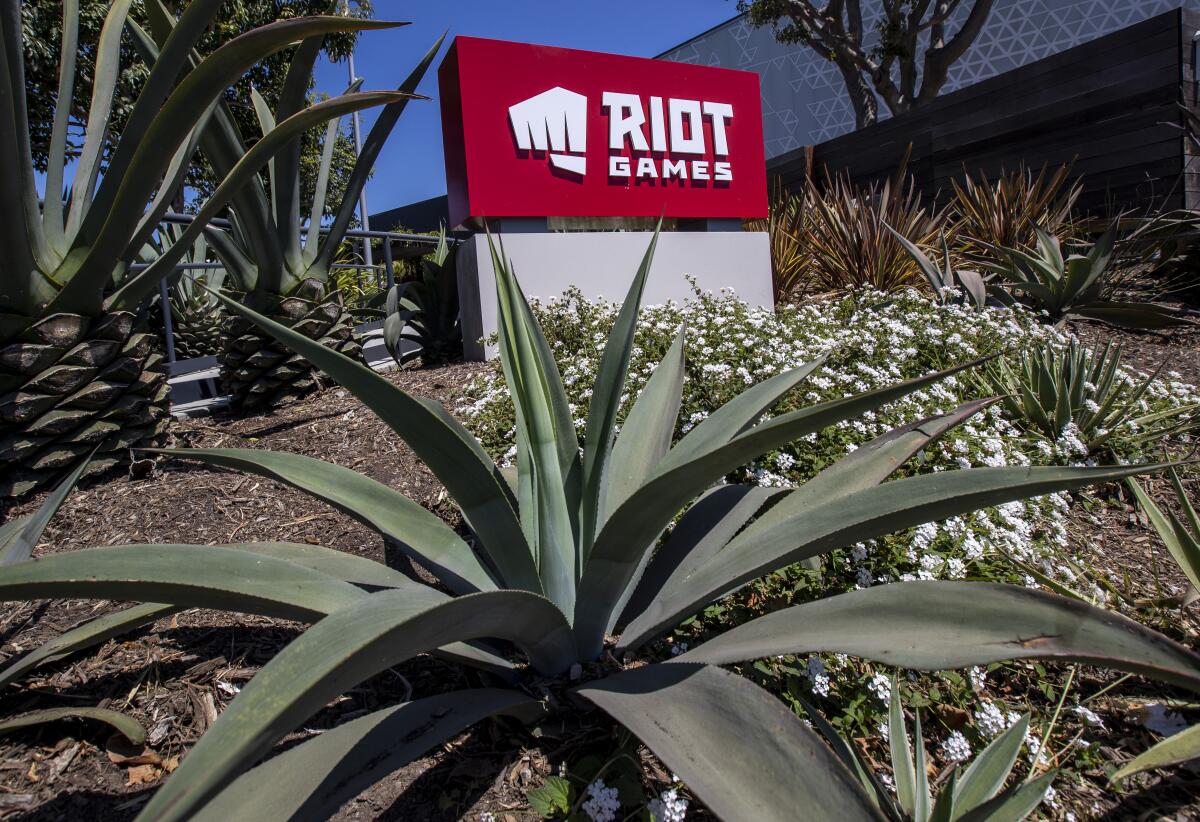Tencent’s stake in Riot Games draws national security scrutiny

- Share via
The Trump administration has asked gaming companies to provide information about their data security protocols involving Chinese technology giant Tencent Holdings Ltd., people familiar with the matter said.
The Committee on Foreign Investment in the U.S., which is chaired by the Treasury Department, has sent letters to Epic Games Inc., Riot Games and other companies, to inquire about their security protocols in handling Americans’ personal data, said the people, who asked not to be named because the discussions are private.
Tencent, the world’s largest gaming company, owns Los Angeles-based Riot and has a 40% stake in Epic, which is the maker of the popular video game “Fortnite.” Representatives of the companies declined to comment or didn’t immediately respond.
The Treasury Department declined to comment. Tencent’s American depositary receipts fell 2.4% to $66.66 after the report.
CFIUS investigates foreign acquisitions of American businesses for national security risks. It has authority to examine full acquisitions as well as non-controlling investments and recommend that the president block or unwind deals. It can also scrutinize deals that weren’t voluntarily reported.
Congress in 2018 increased CFIUS’ jurisdiction to review transactions by foreign companies retroactively for non-controlling investments if the companies involved maintain or collect sensitive personal data of U.S. citizens.
The latest move is part of heightened scrutiny of Chinese companies and their ties to U.S. firms by the Trump administration. In August, President Trump ordered a ban on Tencent’s WeChat app. The scope of those restrictions is expected to be announced by the Commerce Department around Sept. 20.
Trump has escalated his fight with Beijing in recent months as the November presidential elections approach and has blamed China for the COVID-19 pandemic.






